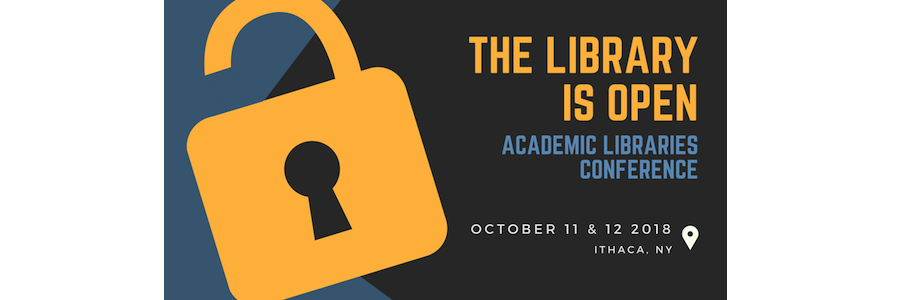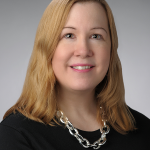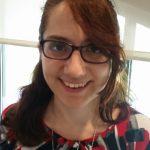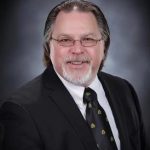PRESENTER SLIDES
Embrace the Informal, by Kate Bellody
No More Same as it Ever Was, by Brenna Helmstutler
Openness and Usability in Academic Special Collections, by Jess Hoffman
Opening the Archives for 21st Century Access, by Powell, Pekarek, Ochs, Hillenbrandt
I Never Knew a Librarian Did That!, Logan Rath
We Hear You Loud and Clear!, by Mustafa Sakarya
Opening Up to Concurrent Enrollment, by Susanna Van Sant
SCHEDULE OF EVENTS
Thursday, October 11, 2018
- 1:00 pm Registration Opens
- 1:30 pm Afternoon Workshop: Ohio’s New Approach to Assigned Textbooks, Amy Pawlowski
- 3:15 pm Tours (Leaving from the lobby of Hotel Ithaca)
- History Center Haunted Tour
- Cornell Library Tours: Mann Library Makerspace & Olin Library Shipping Container
- (those attending the workshop, meet in the lobby when the workshop ends)
- 5:15 pm Happy Hour (cash bar at Hotel Ithaca)
- 6:15 pm Dinner
- 7:00 pm Invited Speaker: Arthur Eisenberg
Friday, October 12, 2018
- 6:15 am Cascadilla Gorge hike (meet in the lobby)
- 7:30 am Breakfast & Registration
- 8:25 am Opening Remarks: Mary-Carol Lindbloom
- 8:30 am Invited Speaker: April Hathcock
- 9:30 am Breakout Session 1
- No More Same as it Ever Was: Redefining the Subject Librarian Role, Brenna Helmstutler
- Openness and Usability at Academic Special Collections in the NY Capital Region, Jessica Hoffman
- 10:30 am Morning Break & Poster Presentations
- 11:00 am Breakout Session 2
- I Didn’t Even Know Librarians Did That: A Faculty and Librarian Teaching Partnership, Logan Rath
- Opening the Archives for 21st Century Access: SUNY Cortland’s Story, Richard Powell, Jeremy Pekarek, Janet Ochs, and Allison Hilldenbrandt
- 12:00 pm Lunch Buffet & Poster Presentations
- 1:00 pm Lightning Talks
- Embrace the Informal: Rethinking the Library’s Campus Partnerships, Kate Bellody
- Opening up to Concurrent Enrollment, Susanna Van Sant
- Open-Ended and User-Focused: Design Thinking for Library Management, Samantha Ann Mairson
- We hear you loud and clear! Integrating student voice into library programming, Mustafa Sakarya
- 2:00 pm Breakout Session 3
- Building an OER Initiative from the Group Up, Malina Thiede
- The Convert’s Story: How I went from OER skeptic to believer in three easy steps, David Flaten
- 3:00 pm Invited Speaker: Gerald Beasley
- 4:00 pm Wrap up; Closing Remarks; Raffle
- 4:30 pm Happy Hour @The Watershed (cash bar)
THURSDAY AFTERNOON WORKSHOP
Ohio’s New Approach to Assigned Textbooks
1:30pm-3:30pm
In 2017, OhioLINK embarked on a series of initiatives (collectively referred to as “Affordable Learning Ohio”) to help lower the cost of course materials for students attending Colleges and Universities across the state. In addition to OER initiatives and promoting library acquired content as course content alternatives, OhioLINK embarked on a series of negotiations that resulted in a group of statewide “Inclusive Access” text book deals with the 5 major text book publishers. This workshop will cover the details around the construction of the deals, how they work, and what OhioLINK has learned from the process.
Presenter:

Amy Pawlowski
GROUP TOURS
Thursday at 3:30pm
Cornell University tours:
mannUfactory makerspace http://makerspace.library.cornell.edu/
AND/OR
the Portal http://guides.library.cornell.edu/portals
Notes on the Cornell Tours:
The makerspace tour will begin around 3:40pm and probably last until about 4:30pm. From there, it’s about a 15 minute walk down to Olin Library for those who would also like to experience the Portal.
For those who would like to skip the makerspace tour, the Portal connection to Mexico City starts at 4:15pm, and the Portal curator will be there to greet the initial group. The Portal typically cycles about 5-6 people through in 20 minute sessions, which will give the Portal-only tour goers access to the Portal before the makerspace tour goers arrive.
We hope to have multiple vehicles available to ferry people back and forth between Hotel Ithaca and Cornell. We will have more information on this available at the registration table when you sign in on Thursday.
Haunted walking tour of The History Center in Tompkins County
Downtown Ithaca holds narratives of past people and buildings. What is from the past can be present to us if we are open to hearing the stories. Are there spirits or are they just memories? You decide, but know that the tales might be chilling as death, murder, jealousy, insanity, and accidents are recalled. Come along for this 75 minute guided tour. Be attentive and watchful.
The History Center in Tompkins County is less than a 1/2 mile walk from Hotel Ithaca. Please meet in the hotel lobby to walk over at 3:30pm.
Friday morning, 6:15 am
Cascadilla Gorge Hike
Meet in the lobby of Hotel Ithaca to walk over to the base of the Ithaca Falls and Cascadilla Creek Gorge during sunrise.
INVITED SPEAKERS

Arthur Eisenberg
Library Censorship and Principles of Academic Freedom
Arthur Eisenberg, Legal Director of the NY Civil Liberties Union
Art was involved in the litigation of the only library book censorship case to be the subject of plenary review by the United States Supreme Court. The case, Island Trees School District v. Pico, involved a controversial decision by a school district to remove ten books from its high school library and a claim that the decision violated the First Amendment. The books that were removed included Vonnegut’s Slaughterhouse Five, Malamud’s The Fixer, and Cleaver’s Soul on Ice. Art will discuss the claims made by the parties to the controversy and the emergence, in this country, of principles of academic freedom that are protective, not only of university scholarship but which can also guard against censorship in other contexts involving government-funded expression. Art’s talk will include broader principles of academic freedom as they were developed and have been applied at American colleges and universities.
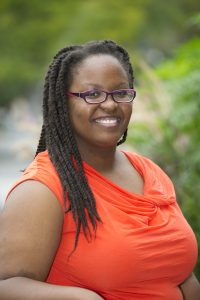
April Hathcock
Open Is: A Conversation
April Hathcock, Scholarly Communications Librarian, New York University
So often, open (access, data, scholarship, educational resources) is taken for granted as a unidirectional exchange of thoughts, ideas, and values. We do open in academia so that those of us with more mainstream qualifications, experience, resources, and ways of knowing we can share our wealth of knowledge with those on the margins. But the fact is that the real power of open lies in its democratizing ability, the ways in which it can bring seemingly disparate elements into reflective conversation. This keynote, rather than being a conventional sage-on-the-stage type session, will feature the kind of back-and-forth, reflective conversation that open can, and should, be. We will activate different ways of knowing and learning to engage in open dialogue about what open is for us in our day-to-day work. P.S. In particular, those who commonly find themselves on the margins in academia—women, trans, and non-binary people; people of color; queer people; disabled people; indigenous people—are encouraged to take up space and share their thoughts and experiences in this open conversation.
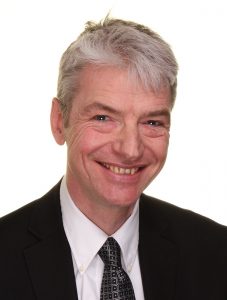
Gerald Beasley
Is the Library Open?
Gerald Beasley, Carl A. Kroch University Librarian, Cornell University
At the end of our conference on academic libraries and OA/OER, Gerald Beasley will review some of the constraints faced by academic libraries, and suggest ways librarians might collaborate to achieve the shared goal of advancing a more inclusive, just, and open society.
BREAKOUT SESSIONS
9:30 am – 10:30 am: Breakout Session #1
No More Same as it Ever Was: Redefining the Subject Librarian Role
Being a subject librarian in 2018 is worlds apart from its bibliographer iteration, and the days of conducting all interactions face-to-face and only assisting faculty and students with their research by finding library resources are practically obsolete. The presenter will review the evolution of the subject librarian and discuss newer ways of connecting with departments through activities such as online services and scholarly impact.
Presenter:
Openness and Usability at Academic Special Collections in the NY Capital Region
As a student of library science, with a vested interest in both libraries and academia, I can provide a unique perspective on academic libraries as both a user and as a librarian. I have visited and examined many institutions of higher learning in the area of SUNY Albany (including UAlbany, Hudson Valley CC, Russell Sage, and Siena) and taken note of the usability, accessibility, and preservation practices at the special collections. In this presentation I would present my findings and talk about the trends I have noticed regarding the openness of special collections.
Presenter:
11:00 am – 12:00 pm: Breakout Session #2
I Didn’t Even Know Librarians Did That: A Faculty and Librarian Teaching Partnership
In this presentation we seek to define and explore the multitude of ways that faculty members can improve their students’ course experiences through collaboration with their university librarian(s). We discuss the evolution of our partnership and the ways that the education librarian has been able to foster and support meaningful online and F2F activities, opportunities, and interactions between students and the library. Such teaching moments are of particular importance in our partnership’s context because the faculty member works with preservice and inservice teachers who are expected to work closely with librarians in their professional settings.
Presenters:
Opening the Archives for 21st Century Access: SUNY Cortland’s Story
Making a special collections and primary resource materials more open to users becomes extremely important, especially when those materials can highlight a significant event. SUNY Cortland celebrates its Sesquicentennial in 2018 with a look back at 150 years. In anticipation of increased interest, Memorial Library began reimagining its Archives in 2015 by relocating its collection to new and more accessible location, (re)processing the collection, welcoming users by appointment, and creating various methods of digitization to reach a wider audience. Opening access to the College Archives over the past few years has taken it from the closet to the desktop.
Presenters:
Allison Hillenbrandt, not pictured
2:00 pm – 3:00pm: Breakout Session #3
Building an OER Initiative From the Ground Up
Over the last two years, SUNY Plattsburgh has made a concerted effort to reduce student costs by increasing adoption of open educational resources. This presentation will detail the library’s role in promoting OERs and building a sustainable OER program from scratch: from gathering baseline data, to forging vital campus partnerships, to conducting outreach and training. Although still in its early phases, this initiative has begun a vigorous and necessary discussion on campus about how best to ensure student access to resources at less expense.
Presenter:
Malinda Thiede
The Convert’s Story: How I went from OER skeptic to believer in three easy steps
Dr. Flaten went through several different traditional textbook iterations, but was never content with the content, accessibility, or cost. Prof. Flaten used his first OER product in Spring 2018 for his America to 1877 history sections in response to those concerns. That successful experience led him to convert both his American National Government as well as Western Civilization I courses to OER in the fall 2018 semester making all his teaching sections OER!
Presenter:
David Flaten
LIGHTNING TALKS
Embrace the Informal: Rethinking the Library’s Campus Partnerships
On every campus there are hidden opportunities that are perfect for a library collaboration. Learn how to recognize and propose unique, informal, and symbiotic connections with departments across campus. Practical examples that incorporate the library staff, space, and resources will inspire you to get out and explore the untapped potential on your campus.

Kate Bellody
Opening up to Concurrent Enrollment
Through its College Now program, Tompkins Cortland Community College enables high school students to earn college credits while they are in high school and without requiring trips to campus. The high school students in these courses have access to our library resources and services to complete their coursework successfully. Their teachers also have access to our resources, and are encouraged to use our materials for course content and assignments. Hear about how the library has opened itself up to these population and developed services to support the students, teachers and librarians at participating College Now schools.
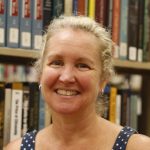
Susanna Van Sant
Open-Ended and User-Focused: Design Thinking for Library Management
Design thinking methods are a huge asset to any library leaders. In the age of open-ended publishing, one must be an open-ended thinker. Learn the basics of design thinking and consider how they might be used to guide your projects and teams to success. Encounter new resources for designing user-centered solutions.
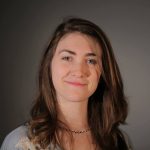
Samantha Ann Mairson
We hear you loud and clear! Integrating student voice into library programming
In 2013, The Middle States Commission on Higher Education hailed the Mercy College Library as a “Significant Accomplishment” for using students in continuous quality improvement in its physical spaces. We openly embrace student ideas and assistance for:
• Employing students to create graphic design signage and a promotional chocolate “Infobar”
• Curating social activist content for a 90 inch lobby monitor
• Displaying student artwork and research posters
• Designating a 20 foot dry-erase “Feedback Wall” to solicit student responses
• Deploying annual surveys on space, service and resources
The talk will provide an overview of our robust integration of students in library space programming.

Mustafa Sakarya
POSTERS
Opening Up the Definition of ‘Librarian’: Redefining the Librarian Skill Set
When you apply for non-library jobs as a librarian, it is often vital that you become adept at defining or reframing the skills gained in library schools and positions. Hear a former technology librarian, instructional designer, blackboard specialist, and current science librarian explain how she was able to redefine the skills of library school to adjust to a changing employment climate. Many of the pedagogical, managerial, and technological skills learned in library school apply to non-library jobs. This discussion-based session will help participants gain the confidence they need to apply for jobs which may not perfectly fit their degree.
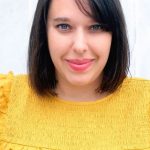
Jenna Pitera
The Empowered Internship: Opening Up the Curriculum
Interns at Milne Library complete a Canvas Course introducing them to library culture, theories, and practices, then edit the course for relevance, correctness, and effectiveness. This presentation will demonstrate the course and talk about the lessons learned from implementation.

Alan Witt
It’s an Honor to Be Here: Librarian Outreach to an Undergraduate Honors Program
Academic librarians are always considering new opportunities to connect with their academic communities. This poster will outline an ongoing library outreach program to the Honors Program at Nazareth College. Elements of the program include a Freshman orientation workshop on interdisciplinary library research, membership on the Honors Advisory Board, and attendance at the National Collegiate Honors Council conference in 2017. Best practices and recommendations for starting an Honors outreach program will be included.

Ilka Datig
Open and Secure: A Look At Information Security in Librarianship
Designed as a primer on information security management, this research aims to bridge librarianship to its IT counterparts and guide academic libraries to probe deeper into issues of privacy, security and authorized access.

Samantha Ann Mairson
The Inflatable Librarian: enabling student creativity with media and technology
The Mercy College Librarians have opened-up and expanded their roles by developing three different technology based programs that encourage student learning and engagement beyond traditional text. Our “poster librarian” manages our professional poster production service, working with students to develop effective and well-constructed research posters for exhibit at local and regional symposium. Our “3D librarian” has accelerated use of our new makerspace, working with faculty to integrate 3D printing into curriculum, and with students to build robotic devices. Our “digital story librarian” works with students to develop their media skills, in the creation of powerful digital stories, in all disciplines.

Mustafa Sakarya
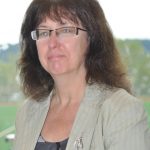
Tesse Santoro
Opening SU Libraries to Online & Distance Students
With 31 percent of post-secondary students now taking at least one online course, academic libraries have increasingly sought ways to support online and distance students and the faculty who teach courses online. Let’s chat about some of the opportunities and challenges that Syracuse University Libraries has experienced when trying to serve the online community, along with other ideas that we hope to implement in the near future, and your own experiences and ideas as well.

John Stawarz
Expanding Digital Collections at Binghamton University Libraries
At Binghamton University there are efforts to expand the Libraries’ digital collections. Through digitization projects, the Libraries preserve and make accessible recordings of university music recitals and other digitized Special Collections materials, including photographs and diaries, via a digital preservation system (Rosetta). The Libraries also use an IR (Digital Commons) and Omeka to manage and promote digital collections created by faculty and departments on campus including photograph collections and the University Art Museum collection. More recently, the Libraries have begun developing an online virtual exhibit, Centre for the 1960s, which will feature oral histories from prominent figures of that time. This poster will give an overview of the creation and curation process for these unique digital collections, in general, and we will highlight and display a few of the collections that are on each of the different platforms.

Erin Rushton
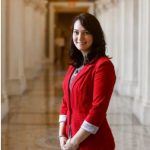
Amy Gay
ACCOMMODATIONS AND TRAVEL INFO
EVENT VENUE:
Hotel Ithaca
222 S. Cayuga St.
Ithaca, NY 14850
Hotel Ithaca has reserved a block of rooms for the conference. Call 607-272-1000. The room rate is $149 per night; the Group ID is #3358. There is limited free parking at the hotel both for overnight guests and commuters. There is also a parking garage across the street ($7 per day, max) and free parking on the street a few blocks from the hotel.
Beyond cars and carpooling, regular and express buses run between NYC and Ithaca. Newark offers direct flights, arriving in Ithaca at 12:09 p.m. (perfect timing for the 11th!); they depart from Ithaca at 7:30, which leaves time to enjoy an early dinner at one of Ithaca’s many restaurants.
ABOUT THE CONFERENCE
Planning Committee:
- Amber Amidon, Clarkson University
- Laura Harris, SUNY Oswego
- Lisa Hoover, Clarkson University
- Lynne Kvinnesland, Colgate University
- Alison Larsen, Siena College
- Mary-Carol Lindbloom, South Central Regional Library Council, conference co-chair
- Laura Osterhout, Rochester Regional Library Council, conference co-chair
- Jessica Philippe, South Central Regional Library Council
- Kabel Stanwicks, SUNY Albany
- Marcy Strong, University of Rochester
- Angela Thor, Central NY Library Resources Council
- Marc Wildman, Central NY Library Resources Council
Conference Sponsors:
The Academic Libraries Conference is a biennial one and a half day conference open to all academic library professionals. It is sponsored by the Empire State Library Network, the New York Library Association’s Academic & Special Libraries Section, and the Eastern New York chapter of ACRL.
CODE OF CONDUCT
We strive to support an open exchange of ideas within a safe and respectful environment. We value your attendance at the Academic Libraries conference, and are dedicated to providing a positive event experience for all participants. We want all of our professional development events to be welcoming, supportive, and comfortable for all participants.
Participation in discussions and activities should be respectful at all times. All are expected to exercise tolerance of the perspectives and opinions of all present and use discretion with photographs, recordings, and sharing.
We do not tolerate harassment in any form. If a participant engages in harassing behavior, conference organizers may take any action it deems appropriate, including warning the offender or expulsion from the event. Event organizers will assist participants in contacting building/venue security or local law enforcement, or otherwise assist those experiencing harassment to feel safe for the duration of the event. If you are being harassed, or have any other concerns, please contact an event organizer immediately.

